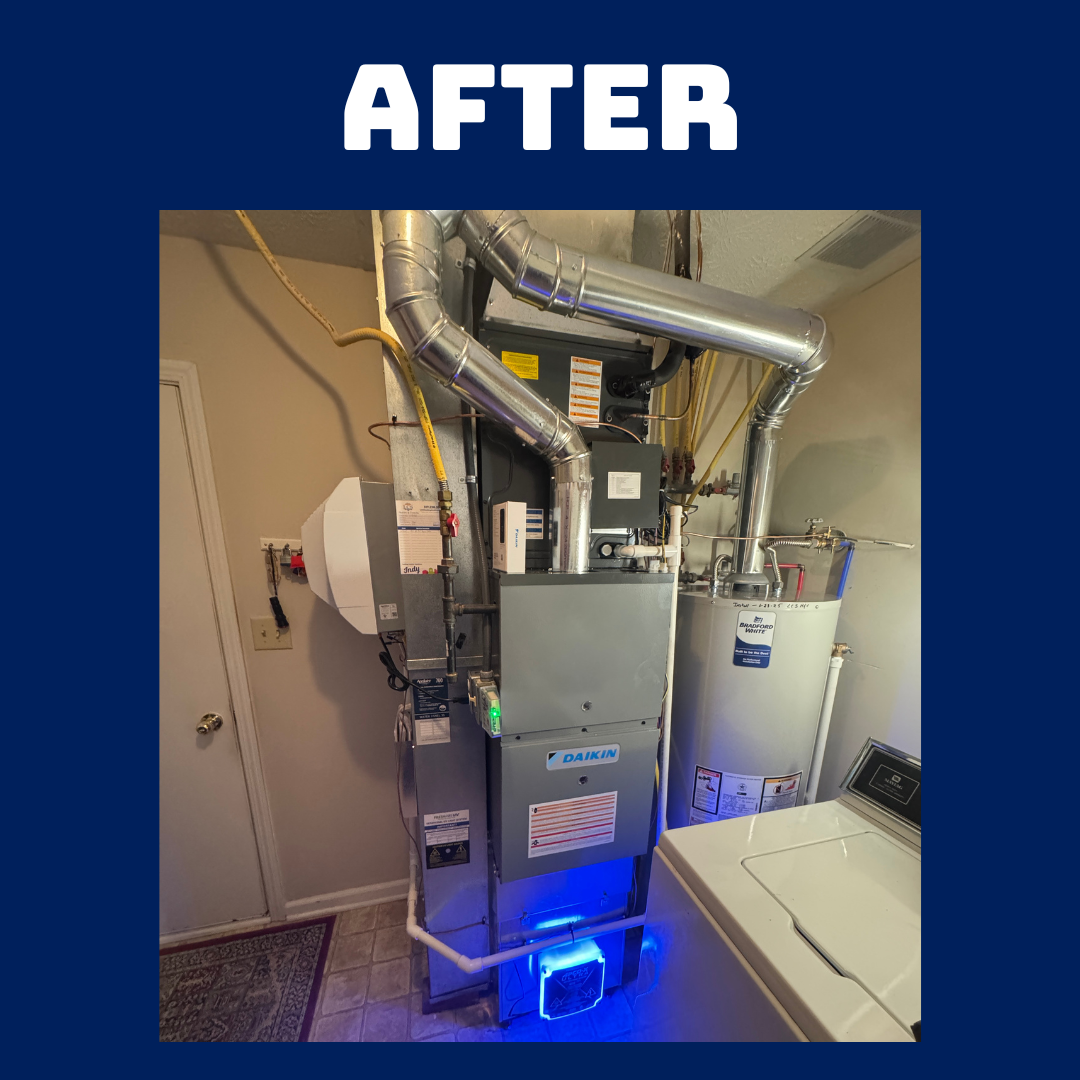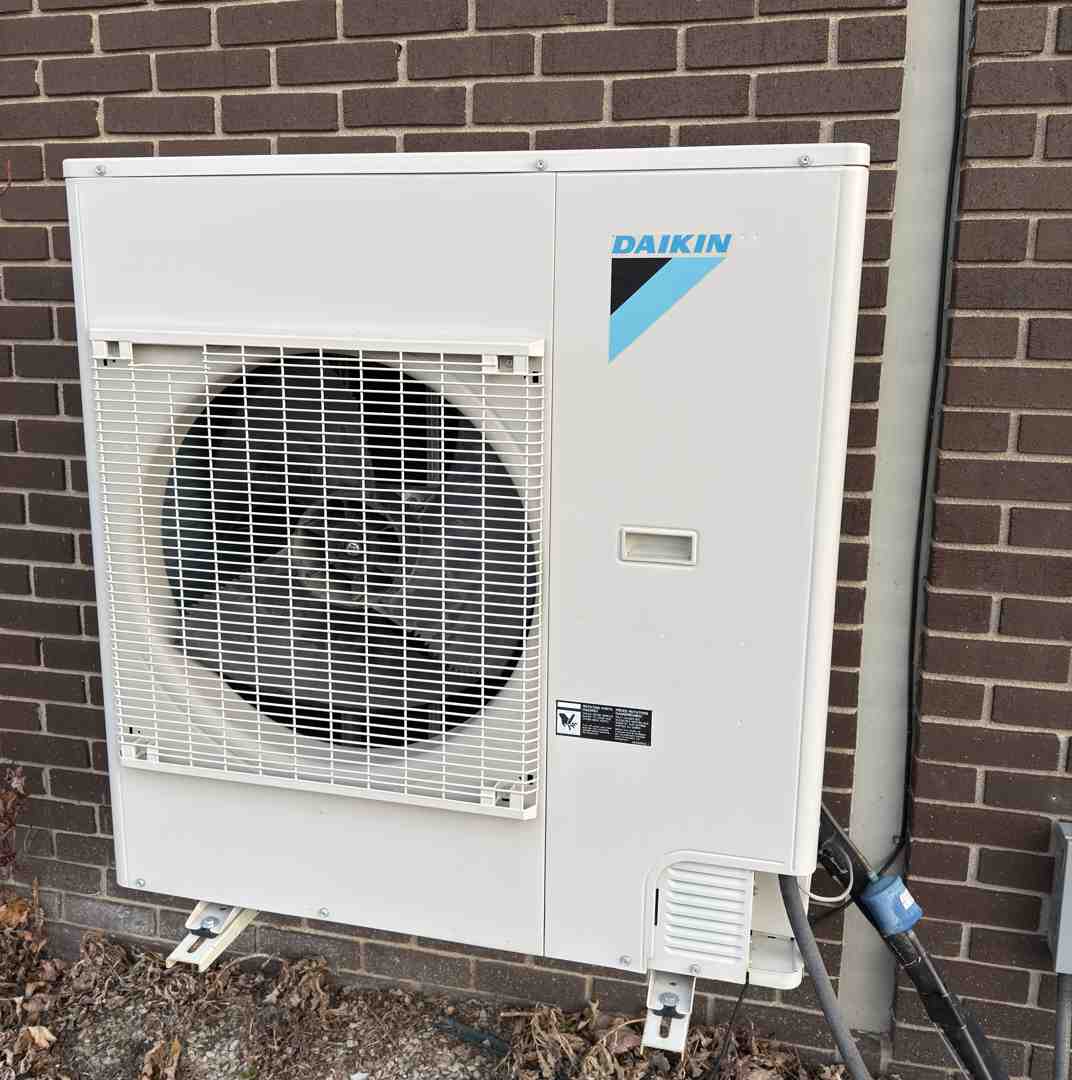Duct Cleaning: Money Grab or Essential Maintenance?
The Great HVAC System Cleaning Debate
HVAC system cleaning sparks heated debates. Advocates claim it's essential for your health and wallet, while skeptics dismiss it as an expensive scam.
Quick Answer: Is HVAC System Cleaning Necessary?
- Sometimes necessary: When there's visible mold, pest infestation, or excessive debris
- Often unnecessary: For routine maintenance or light dust accumulation
- EPA stance: Only clean "as needed," not routinely
- Cost range: Typically $450-$1,000 per system
- Health claims: Largely unproven according to research
The confusion is understandable. Your HVAC system, the "lungs of your home," circulates air 5 to 7 times daily through hidden ductwork. Over time, it can accumulate harmless dust or concerning contaminants like mold and pest debris.
Poor indoor air quality can worsen allergies and asthma, and dirty systems can waste 25-40% of your heating and cooling energy. Yet, the Environmental Protection Agency (EPA) warns that duct cleaning "has never been shown to actually prevent health problems" and cautions against routine cleaning.
So when does cleaning make sense, and how can you tell a legitimate service from a high-pressure sales pitch?
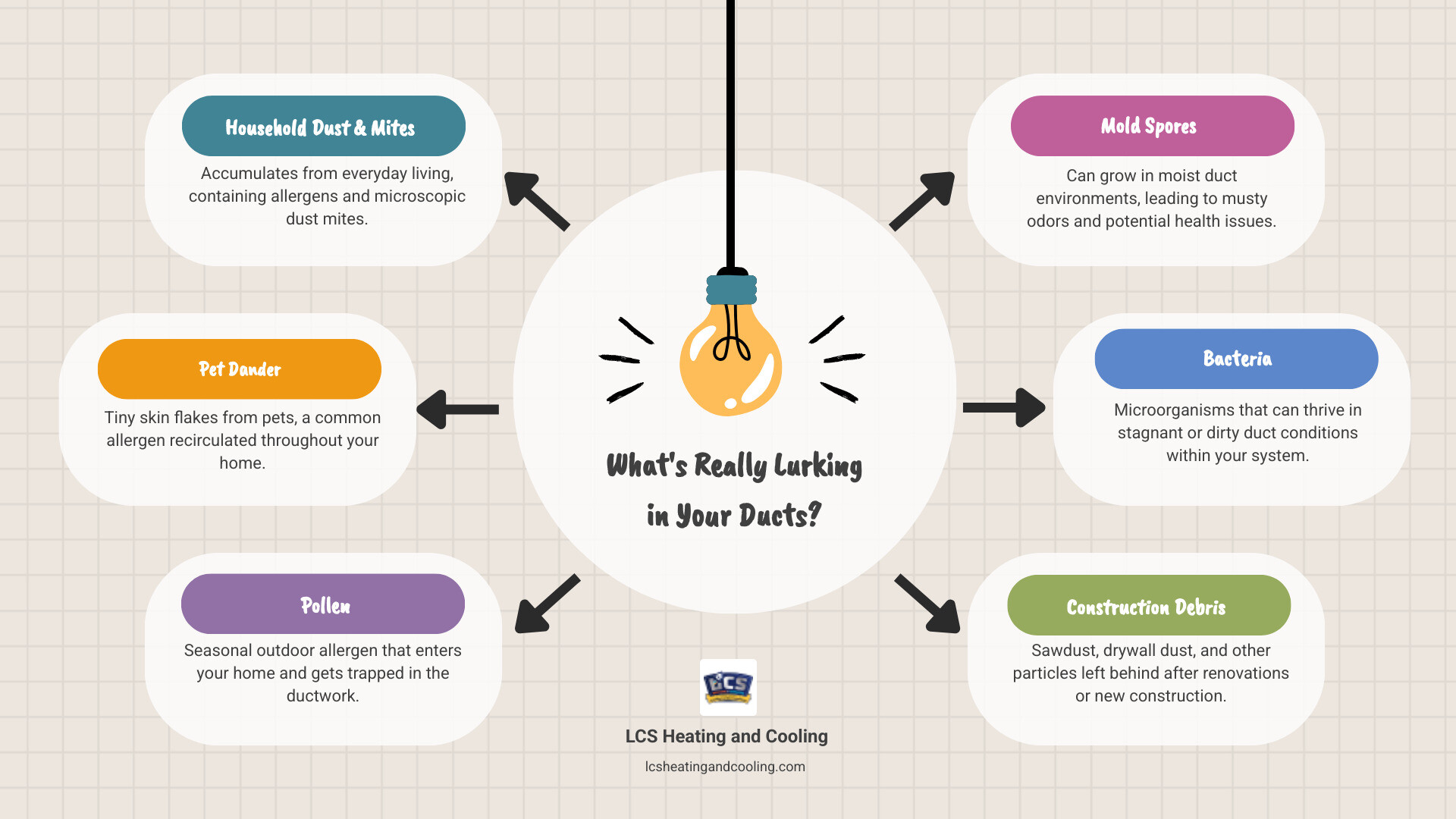
What's Really Lurking in Your Ducts?
Your HVAC system's hidden ductwork acts as an invisible highway for air in your home. While HVAC system cleaning might not be on your daily to-do list, what's traveling through those pathways might surprise you. Your system circulates air 5 to 7 times a day, picking up everything floating around.
The usual suspects include household dust, pet dander, pollen, and dead skin cells. More concerning contaminants can also build up, including mold spores, bacteria, and debris from rodents or insects. If you've recently renovated, construction debris like drywall dust can settle in your ducts. A typical 1,500-square-foot home can generate about 40 pounds of dust annually.
When these contaminants get recirculated, they can trigger allergies, worsen asthma, and aggravate other respiratory conditions. While a light dusting on your vents isn't cause for alarm, significant buildup—especially mold or pest droppings—is a concern. Your wallet also feels the impact, as grime forces your system to work overtime, shortening its lifespan and risking expensive repairs.
Understanding what's in your ducts is the first step in deciding if professional HVAC system cleaning is right for you. For a deeper dive, check out our article on Why Air Duct Cleaning is Crucial.
The EPA's Stance on Duct Contamination
The U.S. Environmental Protection Agency (EPA) takes a cautious stance, recommending HVAC system cleaning only on an "as-needed basis." This means you should clean your ducts when there's a problem, not as a routine annual task.
Why the caution? Research reviewed by the EPA has not proven that duct cleaning prevents health problems. Studies haven't shown that dirty ducts automatically lead to dirtier air, as most debris tends to stick to duct surfaces rather than becoming airborne.
This doesn't mean duct cleaning is useless, but that it should be strategic. If your ducts look fine and you have no related health issues, routine cleaning may not provide the promised benefits.
The real game-changer is moisture control. It's your best defense against mold. Cleaning ducts without fixing the underlying moisture issue that caused mold is a temporary fix at best.
For the full story, the EPA's guide on air duct cleaning provides details to help you make an informed decision.
The Impact on Energy Efficiency
Your energy bills are directly impacted by your HVAC system's cleanliness. A staggering 25 to 40 percent of the energy used for heating or cooling can be wasted when the system fights through accumulated dirt and debris.
When contaminants build up on crucial parts like cooling coils, the heat exchanger, or within the ductwork, your system works overtime. Dirty coils reduce cooling efficiency, and a clogged blower fan struggles to move air effectively.
Proper HVAC maintenance, including HVAC system cleaning when needed, can potentially cut energy bills by 20 to 30 percent. A clean system also runs with less strain, which means fewer breakdowns and a longer lifespan for your equipment.
However, even clean ducts are inefficient if they're leaky. Duct sealing is crucial to prevent conditioned air from escaping. You can find more information at the Energy Star recommendations for duct sealing.
Clean, well-sealed ducts help your system work smarter, not harder, saving you money on energy bills.
The Verdict: When Is Duct Cleaning Actually Necessary?

So, when is HVAC system cleaning truly necessary? The answer lies not in a schedule but in the specific conditions of your ductwork. Certain red flags indicate it's time to call a professional.
The clearest indicators are visible mold growth inside ducts, pest infestations, or excessive dust blowing from your vents. A post-renovation cleanup is also wise after major construction.
More subtle signs include unexplained allergies that worsen at home or persistent musty odors when the system runs. If you're moving into a new home, an inspection and cleaning offer a fresh start.
For a detailed breakdown, our article on Air Ducts Need to Be Cleaned: 5 Surefire Signs explains what to look for.
Clear Signs You Should Call a Professional
Some situations make the decision crystal clear. When you encounter these specific conditions, HVAC system cleaning isn't just recommended — it's necessary for your health and comfort.
Substantial visible mold on hard surfaces inside ducts tops the list of urgent concerns. If you can actually see mold growing on the metal or other hard surfaces of your ductwork, you have both a cleaning problem and a moisture problem. The cleaning will remove what's there, but remember — if the underlying moisture issue isn't fixed, that mold will be back faster than you can say "spore."
Pest infestations create another clear-cut case for professional intervention. Whether it's mice, insects, or other unwanted guests, these critters leave behind droppings, nests, and sometimes even their remains. This debris can harbor bacteria and create serious air quality issues. Once the pest problem is resolved, a thorough cleaning removes all traces of their unwelcome visit.
Excessive dust and debris that's visibly released into your home from supply registers signals a system that's actively distributing contamination rather than filtering it out. We're not talking about the light dust that naturally accumulates around vents — this is when you can literally see particles blowing out, or when surfaces in your home get dusty unusually quickly after cleaning.
A persistent musty odor when the HVAC system runs often indicates mold or mildew growth somewhere in your system, even if you can't see it yet. That earthy, damp smell is your nose detecting what your eyes might miss. If you or your guests notice this smell specifically when your heating or cooling kicks on, it's time for a professional inspection.
When Cleaning Is Likely Unnecessary
Just as important as knowing when to act is knowing when you can relax and save your money. HVAC system cleaning shouldn't be an automatic annual expense — it should address specific problems.
Routine cleaning without specific triggers rarely provides meaningful benefits. If your ducts don't show any of the warning signs we've discussed, if there's no visible contamination, and if your family isn't experiencing unexplained respiratory issues, then routine cleaning is probably unnecessary. The EPA agrees with this approach, recommending cleaning only when there's a clear need.
Light dust accumulation around registers is completely normal. Your return air vents are supposed to collect airborne particles — that's part of how your system filters your air. A light coating of household dust on accessible duct surfaces isn't cause for alarm either.
Regular filter maintenance goes a long way toward preventing the problems that would require professional cleaning. If you're diligent about changing your filters according to the manufacturer's schedule, you're already doing the most important thing to keep your system clean. High-quality filters catch contaminants before they can settle in your ducts.
No unexplained allergy symptoms is another good sign that your ductwork isn't significantly impacting your indoor air quality. If your family feels comfortable and healthy at home, with no respiratory issues that seem tied to your indoor environment, your ducts are probably doing their job just fine.
The bottom line? Don't let anyone pressure you into unnecessary HVAC system cleaning. When cleaning is appropriate, though, it can provide real benefits. Our article on 5 Big Benefits of Air Duct Cleaning explains what you can expect when the service is truly needed.
The Professional HVAC System Cleaning Process
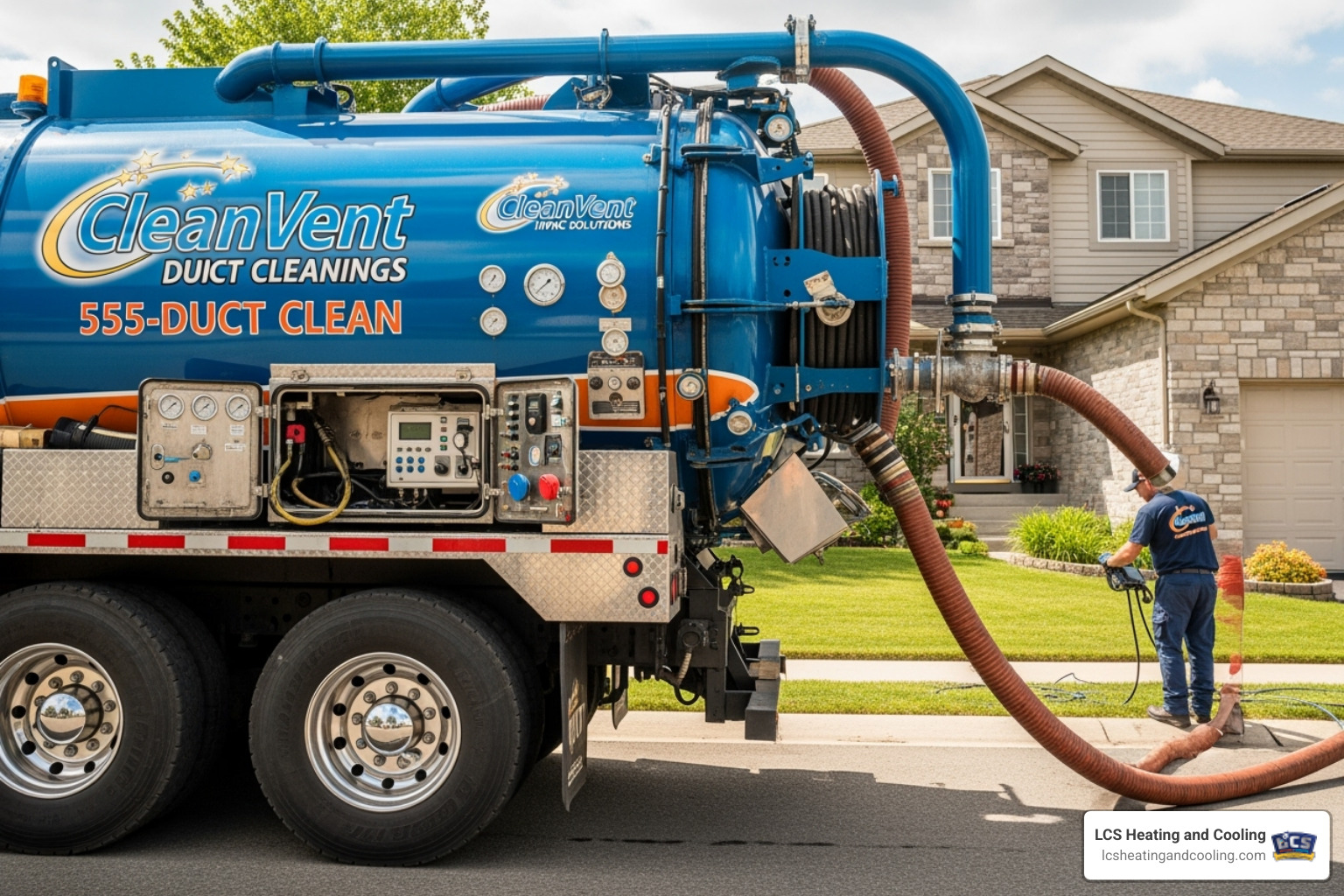
When HVAC system cleaning is necessary, it's important to know what a professional service entails. It's more complex than vacuuming your vents; a proper job cleans the entire HVAC system, not just the ductwork.
The process begins with a system inspection, often using cameras to assess contamination and plan the cleaning. Technicians then create negative pressure by connecting a powerful vacuum to your duct system, which pulls all loosened contaminants out of your home.
While the vacuum runs, agitation tools like rotating brushes and compressed air whips dislodge stubborn debris from duct surfaces. The goal is to remove contaminants without damaging your system.
Professionals also perform critical component cleaning on other parts of your HVAC system, as cleaning only the ducts is ineffective. Finally, technicians carefully seal any access holes they created, ensuring they are airtight to maintain system efficiency.
What a Thorough Cleaning Should Include
Here's where many homeowners get shortchanged — a real HVAC system cleaning goes way beyond just the visible parts you can see. If a company only cleans your ducts while leaving other components dirty, you're essentially paying for a partial job that won't deliver lasting results.
A comprehensive cleaning should address your supply ducts and return ducts — the main highways that carry conditioned air to and from your living spaces. But that's just the beginning. Your registers and grilles (those covers you see on your walls and floors) should be removed and cleaned separately, along with any diffusers that help distribute air into your rooms.
The real value comes from cleaning the mechanical components most homeowners never see. Your heat exchanger is where your furnace actually warms the air, and it needs to be spotless to work efficiently. The cooling coils in your indoor unit are notorious dust and moisture magnets — when they're dirty, your system works harder and may develop mold problems.
Don't forget about the condensate drain pan and line. These components handle the moisture your air conditioner removes from your home's air. When they get clogged or dirty, you're looking at potential water damage and perfect conditions for mold growth.
Your blower motor and housing deserve special attention too. This powerful fan circulates all the air in your home, and when it's struggling against accumulated dust and debris, your comfort suffers and your energy bills climb. The entire air handling unit housing should be cleaned to prevent cross-contamination.
For a deeper dive into the specific methods professionals use, check out our article on Duct Cleaning Techniques.
How to Spot a Scam and Choose a Reputable Pro
Unfortunately, the HVAC system cleaning industry attracts its share of bad actors who prey on homeowners' concerns about indoor air quality. We've seen too many customers who fell for smooth-talking salespeople offering deals that seemed too good to be true — and they were.
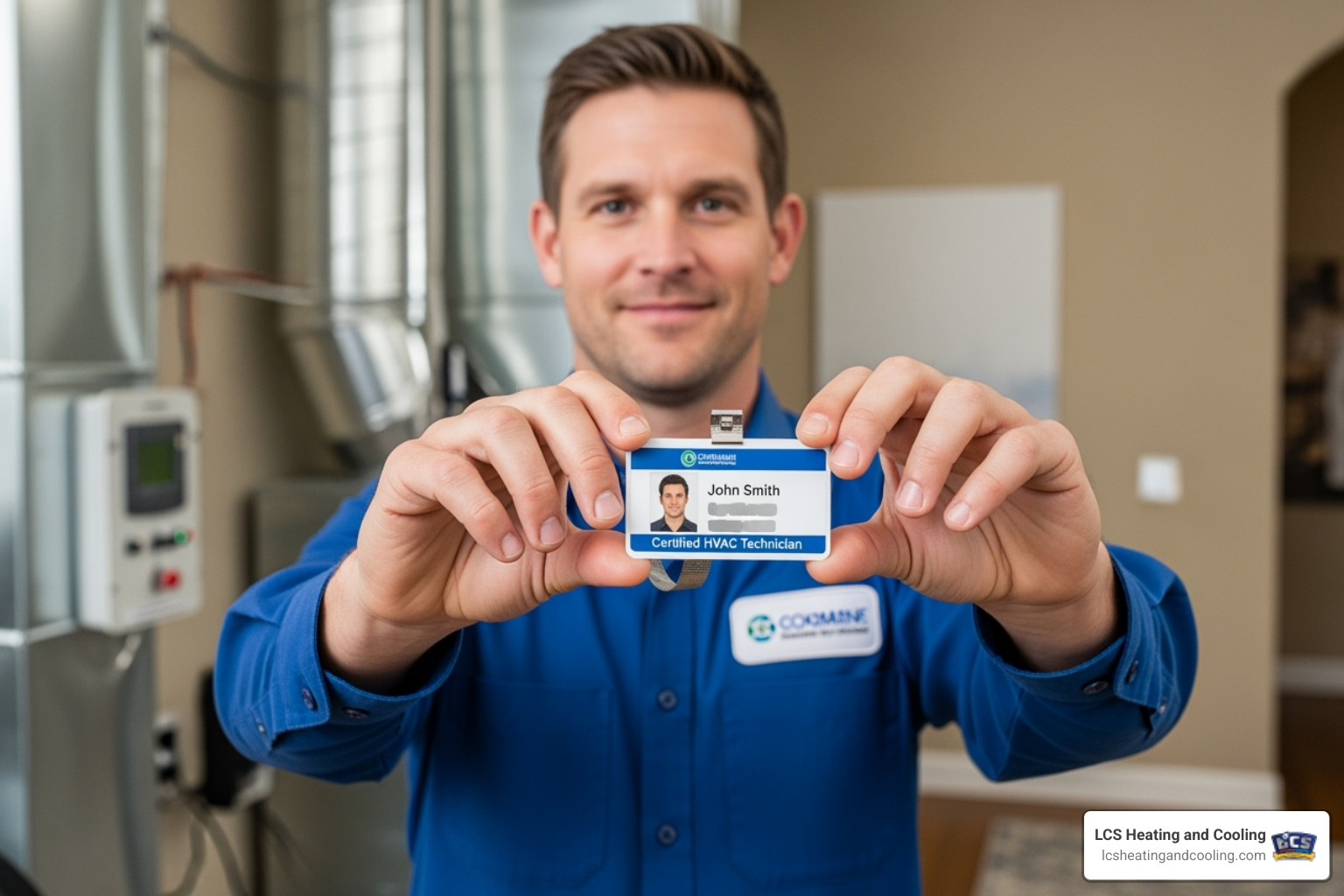
Price scams are probably the most common red flag. If someone offers to clean your entire HVAC system for an incredibly low price, they're likely planning to hit you with expensive "additional services" once they're in your home. Legitimate cleaning requires professional equipment and skilled labor — it simply can't be done cheaply.
Watch out for unsubstantiated health claims too. Any company promising that duct cleaning will cure your allergies, eliminate asthma symptoms, or prevent illness is making claims that even the EPA says aren't supported by research. A trustworthy professional will be honest about what cleaning can and cannot do.
When checking references, don't just ask for them — actually call them. A reputable company will gladly provide contact information for satisfied customers. Ask these references about their experience, whether the work was completed as promised, and if they noticed any improvements afterward.
Always insist on written agreements that spell out exactly what work will be performed, what it will cost, and what guarantees are provided. This protects you from surprise charges and ensures everyone's on the same page about expectations.
Verify that the company carries adequate insurance coverage. You don't want to be liable if something goes wrong during the cleaning process. A professional company will readily provide proof of insurance.
Look for technicians certified by the National Air Duct Cleaners Association (NADCA), which sets industry standards for proper cleaning procedures. You can find a NADCA certified professional through their online directory.
Be especially cautious about chemical treatments. Antimicrobial sprays or sealants should only be used in specific circumstances with EPA-registered products. For fiberglass ductwork with mold problems, replacement is often safer than cleaning. The NAIMA recommendations for fiberglass ducts provide valuable guidance on this topic.
A reputable professional will take time to explain their process, show you the contamination that justifies cleaning, and never pressure you into immediate decisions. At LCS Heating and Cooling, our approach focuses on honest assessment and clear communication — hallmarks of our 7-Star Concierge Service. For more insights on choosing the right professionals, read our article on Why Hire Expert Air Duct Cleaners.
Frequently Asked Questions about HVAC System Cleaning
Let's tackle the most common questions about HVAC system cleaning to help you make the best decision for your family and budget.
How often should I have my HVAC system cleaned?
There's no single answer for every home. The EPA recommends cleaning your system only when needed, not on a routine schedule. The National Air Duct Cleaners Association (NADCA) suggests an inspection every 3 to 5 years as a general guideline, but this is not a strict rule.
Your home's specific circumstances are more important. Factors that might require more frequent attention include:
- Homes with multiple pets
- Smokers in the household
- Family members with severe allergies or asthma
- After a major renovation
- When moving into a new home
The most important thing is to watch for the surefire signs we discussed earlier: visible mold, pests, excessive dust from vents, or musty odors. These indicators mean it's time to call a professional, regardless of any timeline.
How much does professional duct cleaning cost?
We know cost is a big factor in your decision, and rightfully so. While we don't quote specific prices (every home is different, after all), we can share what industry data tells us about typical investment ranges.
Most homeowners can expect professional HVAC system cleaning to fall within a range that reflects the complexity of the work involved. But here's what really drives those numbers up or down.
Your home's size plays the biggest role. A cozy 1,200-square-foot ranch will naturally cost less than a sprawling 3,000-square-foot two-story home with multiple HVAC zones. More ductwork simply means more time and effort.
System accessibility can be a game-changer too. If your ducts are easily reachable, great! But if technicians need to crawl through tight spaces or steer around obstacles, that extra difficulty shows up in the price.
The level of contamination matters significantly. Light dust accumulation requires basic cleaning, but dealing with mold growth or pest infestations means more intensive work, specialized equipment, and additional safety precautions.
Geographic location influences pricing as well. Service costs in major metropolitan areas typically run higher than in smaller communities, reflecting local business expenses and market conditions.
Some companies bundle additional services like dryer vent cleaning or coil treatments into their packages, which can affect the total investment. Always ask for a detailed, written estimate that breaks down exactly what's included, so you can make an informed comparison.
The cheapest quote isn't always the best value. Quality work by certified professionals protects your investment and ensures the job is done right the first time.
Can duct cleaning damage my HVAC system?
This is such an important question, and we appreciate you asking it. The honest answer is yes – HVAC system cleaning can potentially cause damage, but only when performed by inexperienced or unqualified technicians.
Think of it like surgery. In the hands of a skilled professional, it's beneficial and safe. But you wouldn't want just anyone wielding the tools, right? The same principle applies here.
Inexperienced technicians can create real problems. They might use overly aggressive brushing that damages flexible ductwork or tears internal insulation. We've seen cases where improper technique actually released more dust into homes than was there originally – the opposite of what you're paying for.
Ductwork connections are particularly vulnerable. If someone doesn't understand how your system fits together, they can disconnect joints or create air leaks that waste energy and reduce comfort. These mistakes can be expensive to repair.
Sensitive components like your evaporator coils or blower motor require a gentle touch and proper cleaning solutions. Using the wrong approach or harsh chemicals can cause damage that leads to costly repairs or even complete component replacement.
Here's something that really concerns us: some inexperienced cleaners don't properly seal access holes they create during the service. These openings can become significant air leaks, wasting energy and drawing unconditioned air into your system.
The good news? These risks are almost entirely eliminated when you choose certified professionals who understand proper techniques and use appropriate equipment. They carry insurance, follow industry standards, and have the training to clean your system safely and effectively.
This is exactly why we emphasize the importance of hiring experts. Your HVAC system is a significant investment in your home's comfort and value. Protecting it with professional service isn't just smart – it's essential. For more insights on why expertise matters, check out our article on Why Hire Expert Air Duct Cleaners.
Conclusion
Now you have the information to decide what's best for your home regarding HVAC system cleaning. While the EPA advises against routine cleanings, it's essential when you spot clear warning signs. If you see visible mold growth, find pest infestations, notice excessive dust from your vents, or smell a persistent musty odor, your system needs professional attention.
In these cases, professional HVAC system cleaning can improve indoor air quality, ease respiratory issues, and boost system efficiency. The key is choosing the right professionals—those who are honest, transparent with pricing, certified, and thorough. Be wary of unsubstantiated health claims or deals that seem too good to be true.
At LCS Heating and Cooling, our 7-Star Concierge Service means we're committed to being straight with you from the start. We believe in clear communication, showing up on time, and making sure you understand exactly what we're doing and why. Our goal isn't just to provide a service — it's to help you create lasting comfort in your Indianapolis area home, whether that's in Carmel, Fishers, Lawrence, Noblesville, or Zionsville.
Whether you're dealing with a HVAC system cleaning situation or have other heating and cooling needs, we're here to help you make informed decisions. Ready to breathe easier? Feel free to reach out with questions, or schedule your heat pump service in Indianapolis to keep your home's "lungs" healthy year-round.
